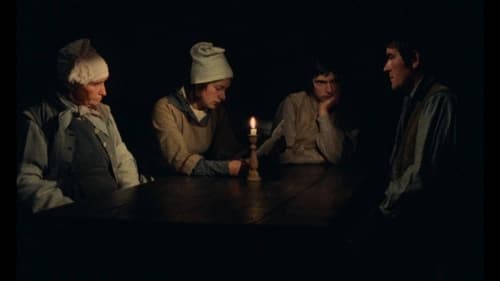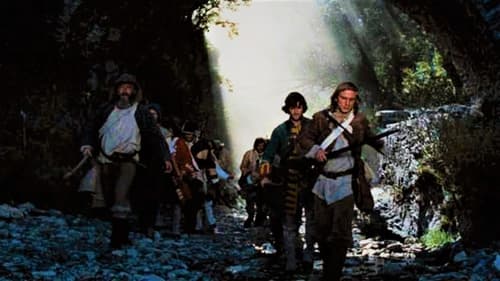René Allio
Nascimento : 1924-03-08, Marseille, France

Director
Contre l'Oubli (Against Oblivion) is a compilation of 30 French filmmakers, Alain Resnais and Jean Luc Godard among them, who use film to make a plea on behalf of a political prisoner. Jean Luc Godard and Anne Marie Mieville's film concerns the plight of Thomas Wanggai, West Papuan activist who has since died in prison. The short films were commissioned by Amnesty International.

Director
In 1941, those who had remained around too long to completely escape the Nazi blitzkrieg had one small, slim chance to escape persecution. They could travel to Marseilles and attempt to get the servile but still nominally independent government of Vichy France to grant them an exit visa. Then they could take passage to safer climes on one of the neutral vessels that stopped there. This drama, based on a novel by Anna Seghers, follows the fates of a small group of desperate people who are attempting to do just that.

Director
1776. Simon Bertiny settles in Hérisson-sur-Allier to practice medicine. He quickly runs into the peasants of the region who refuse the help of a doctor and continue to take care of themselves. When Simon discovers that an epidemic is spreading in the village, he tries to help the villagers fight against the disease.

Screenplay
Max, who dreams of adventures, abandons his studies at 18 to become involved in the navy. He becomes the sailor 512.

Adaptation
Max, who dreams of adventures, abandons his studies at 18 to become involved in the navy. He becomes the sailor 512.

Director
Max, who dreams of adventures, abandons his studies at 18 to become involved in the navy. He becomes the sailor 512.

Director
In the streets of Marseille, René Allio encounters, once again, the spaces of his childhood, and remembers his family history.

Himself
In the streets of Marseille, René Allio encounters, once again, the spaces of his childhood, and remembers his family history.

N°139
Reel 14 of Gérard Courant's on-going Cinematon series.

Director
Michel left Marseilles to Italy when he was twenty years old. Courageous and active, he has succeeded in the construction industry. Thirty years later, his return to Marseilles, for his aunt's burial will abruptly change the life of all of his family, who was first fascinated by his social success. He is regarded as the son who made it like wonder. Michel is the only one who has emigrated. They have all remained in the home country ("le pays") and their social status has hardly changed: workmen, small employees, craftsmen, all living in a modest framework.

About René Allio's 1973 film, " I, Pierre Rivière…", Pascal Kané interviews the filmmaker as well as Michel Foucault, the scientific editor of Pierre Rivière's text.

Screenplay
Based on documents compiled by leading French philosopher Michel Foucault, this unique and original film charts the gruesome events which took place in a Normandy village in 1835, when a young man, Pierre Rivière, murdered his mother, sister and brother before fleeing to the countryside. With a cast made up of real-life villagers from the area where the events took place, the detailed re-enactments and careful attention to the gestures of their ancestors serve to create an intense and sometimes disturbing atmosphere of hyper-realism. Details of the crime and of the trial that followed are told from varied perspectives, including the written confession of Pierre himself, and form a rich and complex narrative that interrogates the concepts of “truth” and “history”.

Director
Based on documents compiled by leading French philosopher Michel Foucault, this unique and original film charts the gruesome events which took place in a Normandy village in 1835, when a young man, Pierre Rivière, murdered his mother, sister and brother before fleeing to the countryside. With a cast made up of real-life villagers from the area where the events took place, the detailed re-enactments and careful attention to the gestures of their ancestors serve to create an intense and sometimes disturbing atmosphere of hyper-realism. Details of the crime and of the trial that followed are told from varied perspectives, including the written confession of Pierre himself, and form a rich and complex narrative that interrogates the concepts of “truth” and “history”.

Writer

Director

Writer

Director

Writer
Pierre is a middle-aged factory worker with plenty of unresolved anger. After his father's death, his mother feels compelled to move in with him. Having just moved there with his beautiful girlfriend, he begins to feel the pressure. When the May Day revolt begins, he goes crazy.

Director
Pierre is a middle-aged factory worker with plenty of unresolved anger. After his father's death, his mother feels compelled to move in with him. Having just moved there with his beautiful girlfriend, he begins to feel the pressure. When the May Day revolt begins, he goes crazy.

Writer
Anne, an unhappily married actress, temporarily assumes the identity of her sister Simone, the successful director of a London fashion house.

Director
Anne, an unhappily married actress, temporarily assumes the identity of her sister Simone, the successful director of a London fashion house.

Screenplay
Madame Bertini, a newly widowed 70-year-old miser, has lived a sheltered life in squalour. She determines to venture into the modern world and have as much fun as possible, and in doing so finds that she loves it. She blows her life savings, much to the disapproval of the young people around her.

Director
Madame Bertini, a newly widowed 70-year-old miser, has lived a sheltered life in squalour. She determines to venture into the modern world and have as much fun as possible, and in doing so finds that she loves it. She blows her life savings, much to the disapproval of the young people around her.

















